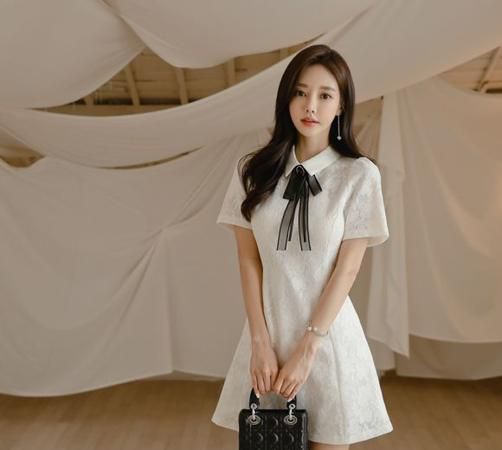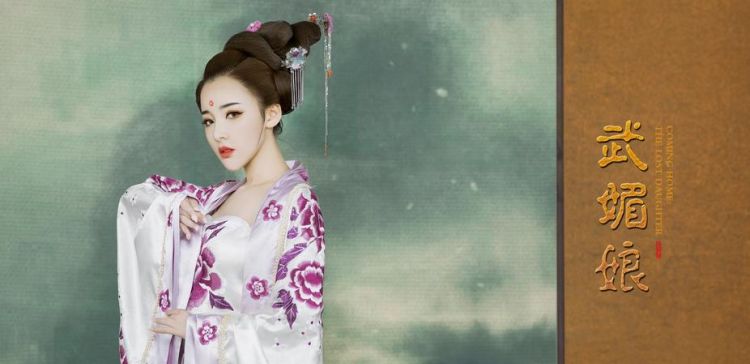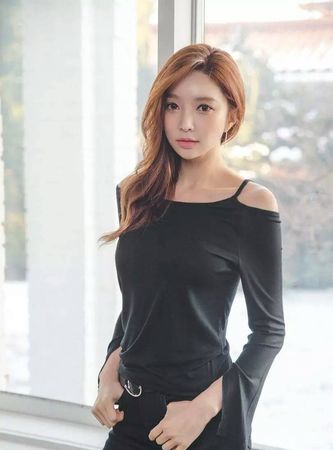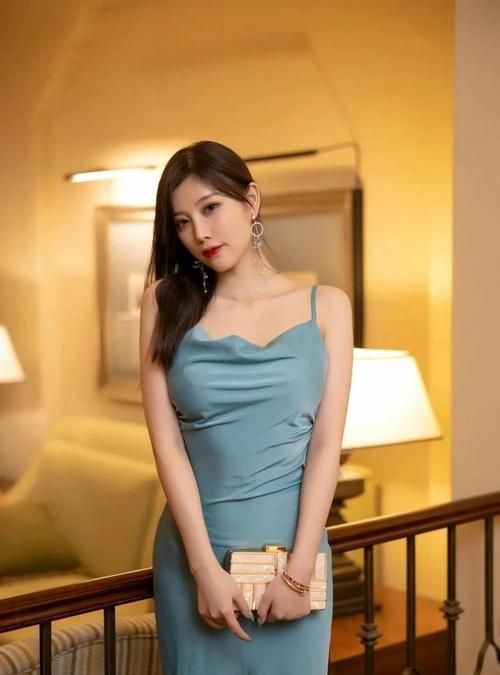Contents of this article
- 1. What are the idioms that describe beauty?
- 2. What is the meaning of Huarongyuemao?
- 3. What is the idiom about Hua Yan?
- 4. Four-character words that describe a character’s appearance and demeanor
What are the idioms that describe beauty?
Idioms describing beauty include: flower face and moon appearance, closed moon shy flowers, national beauty and heavenly fragrance, bright eyes and white teeth, overwhelming country and beautiful city.
1. Huābai yán yuè mào
Definition: Describes a woman’s beauty.
Source: Chapter 6 of "A Dream of Red Mansions" by Cao Xueqin of the Qing Dynasty: "Grandma Liu saw that Ping'er was covered with jewels, gold and silver, and her face was pretty, so she thought she was Sister Feng."
2. Close the moon and shy the flowers bì yuè xiū huā
Definition: Refers to Diao Chan’s beauty compared to the moon, making the moon hide behind the clouds in shame. Now refers to the beauty of a woman's appearance.
Source: Chapter 10 of "The Scholars" by Wu Jingzi of the Qing Dynasty: "At this time, Miss Lu took off her heavy clothes and changed into some elegant and light clothes. Mr. Zang raised his eyes and took a closer look. He really had the appearance of a fish sinking into a swan, and the moon was shy of the flowers. ”
3. The beauty of the country and the fragrance of the country guó sè tiān xiāng
Definition: Originally used to describe peonies whose color and fragrance are different from ordinary flowers. Later, it also described the beauty of women.
Source: Li Zhengfeng's "Peony Poems" of the Tang Dynasty: "The beauty of the country is drunk with wine in the morning, and the fragrance of the sky is dyed with clothes at night."
Translation: The fragrance of peonies can be called the fragrance of heaven. It can dye clothes at night. The color of peonies can be called the national color. It is as beautiful as the face of a drunken beauty in the morning.
4. Bright eyes and white teeth míng móu hào chǐ
Definition: bright eyes, white teeth. Describes a woman's beautiful appearance, and also refers to a beautiful woman.
Source: "The Head of the Aijiang River" by Du Fu of the Tang Dynasty: "Where are the bright eyes and white teeth now? The blood-stained soul cannot return."
Translation: Where are the white teeth and bright eyes of the past? Today, the bloody wandering souls can’t be returned.
5. qīng guó qīng chéng qīng guó qīng chéng
Definition: Originally refers to the country's subjugation due to women's lust. Later, women were often described as extremely beautiful. Qian: overturn; city: country.
Source: Ban Gu of the Eastern Han Dynasty, "Book of Han·Xiaozhixiao·Mrs. Xiaowu Li": "There is a beautiful woman in the north, peerless and independent. She looks at the charming city and then looks at the charming country."
Translation: In the north of China, there was a very beautiful woman who was not married yet. When she looked back once, people in the whole city were fascinated by her beauty. When she looked back again, people all over the country were amazed by her beauty.

What is the meaning of Huarongyuemao?
Huarongyuemao means that the appearance is as beautiful as flowers and as bright as the bright moon.
Beautiful face and beautiful face
【pinyin】[huā róng yuè mào]
【Explanation】The appearance is as beautiful as flowers and as bright as the bright moon. Describes a woman's beautiful appearance. Also known as "flowery face and jade appearance".
[Source] Qing Dynasty Cao Xueqin Chapter 5 of "Dream of Red Mansions": "Spring hates and autumn sorrows are caused by oneself. Who can be beautiful for the beauty of the moon?"
[Synonyms] The beauty of the country and the fragrant beauty of the country, the beauty of the country, the beauty of the moon, the beauty of the moon, the beauty of the moon, the appearance of the sunken fish and the fall of the wild geese, the beauty of the country, the beauty of the country, the beauty of the moon, the beauty of the moon, the beauty of the moon, the beauty of the moon, the beauty of the country, the beauty of the country, the beauty of the country, the beauty of the moon, the beauty of the moon, the beauty of the moon, the beauty of the moon, the beauty of the country, the beauty of the country, the beauty of the country, the beauty of the moon
[Antonyms] Unattractive appearance, deer-headed and rat-like appearance, repulsive appearance
sinking fish and falling geese
【pinyin】[ chén yú luò yàn ]
【Explanation】When the fish see it, they sink into the deep water, and when the geese see it, they fall to the ground. Describes a woman's appearance as being very beautiful. Often used in conjunction with "Closing the Moon and Shy Flowers". Also known as "falling wild goose and sinking fish".
[Source] "Zhuangzi: Equality of Things" by Zhuangzhou of the Warring States Period: "Mao Qiang and Li Ji are the beauty of human beings; fish see them deeply, birds see them fly high, and elk see them suddenly and decisively. Which of the four knows the world?" How serious is that?”
[Synonyms] The beauty of the country is fragrant, the peach is shy, the apricot is shy, the moon is shy of the flower, the graceful lady, the beauty is beautiful, the swallow is jealous and the oriole is ashamed, the wild goose sinks to the fish, the country is beautiful, the fish sinks to the wild goose, the flower is shy to the moon
【Antonym】Appearing to be salt-free

What is the idiom about Hua Yan?
Huayanyuemao [huā yán yuè mào] describes the beauty of a woman.
Source of the idiom: Chapter 62 of "Journey to the West" by Wu Cheng'en of the Ming Dynasty: "The princess is beautiful and beautiful, and has twenty talents."
Usage: conjunction; used as an attributive and complement; forming a woman's beauty.
Synonyms: flower appearance, moon appearance, moon appearance and flower appearance

A four-letter word that describes a character's appearance and demeanor
Idioms about a character's appearance: beautiful eyebrows, picturesque eyebrows, white teeth and red lips, dignified appearance, a talented person, a beautiful country, a flowery face and a moonlight appearance, a flowery face and a moonlike appearance, a closed moon shy of a flower, a flower like a jade
Idioms about a character's demeanor: focused, Attentive, single-minded, concentrated, unsquinting, reluctant to leave, reluctant to leave, lingering, innocent, clever
1. Idioms about a person's appearance
1. Beautiful features [méi qīng mù xiù]
[Explanation] : Eyebrows, eyes: eyebrows and eyes, generally refers to appearance. Describes a person's appearance as being delicate and not vulgar.
[From]: The first fold of Yuan·Anonymous's "Contract Literature": "There is a child called Zhenzhi. He is three years old this year. He was born with beautiful features and beautiful eyes. He is a good child. ”
2. Eyes and eyebrows are picturesque [méi mù rú huà]
[Explanation]: Describes an upright and beautiful appearance.
[From]: Southern Dynasties Fan Ye's "Book of the Later Han: Biography of Ma Yuan": "Yuan returned to the capital, and he was admitted to see him. He is a man with clear beard and hair, and picturesque eyebrows. "
[Translation]: Quoted since returning to the capital, he was summoned to the palace many times. In order to present a good appearance to others, he dyed his hair and shaved his beard, making him look straight and beautiful.
3. White teeth and red lips [chǐ bái chún hóng]
[Explanation]: White teeth and red lips. Describes a beautiful face.
[From]: Ming Dynasty Hu Wenhuan's "Qiongju Ji·Sang Xia Playing Wife": "I saw only red lips and white teeth, a peach-shaped face, green temples and red eyebrows, so I couldn't bear to leave. "
[Translation]: I saw that the other party had white teeth, red lips, a peach-pink face, green hairpins and willow eyebrows. I couldn't bear to leave after seeing him.
4. Dignified appearance [yí biǎo táng táng]
[Explanation]: Appearance: a person’s appearance and demeanor; dignified appearance: a solemn and generous appearance. Describes a person's appearance.
[From]: Modern times The second act of Guo Moruo's "Cai Wenji": "Prime Minister Cao is tall and majestic, with a majestic appearance. "
[Translation]: Prime Minister Cao is tall and tall, with a good appearance.
5. Yibiao talent [yī biǎo rén cái]
[Explanation]: Table: refers to appearance. Describes a person's handsome and upright appearance.
[From]: The first chapter of "Wangjiang Pavilion" by Guan Hanqing of the Yuan Dynasty: "Madam, if I leave you alone, are you afraid that you won't find a husband you like? ”
6. 国色天香 [guó sè tiān xiāng]
【Explanation】: The original description is peony flowers whose color and fragrance are different from ordinary flowers. Later, it also described the beauty of women.
[From]: Tang Dynasty Li Jun's "Yi Yi Ji": "The country is beautiful in the morning and the wine is drunk, and the sky is fragrant and the clothes are dyed at night. "
[Translation]: The color is different from ordinary flowers, like a drunk girl, and the fragrance seems to fall from the sky and stain the clothes.
7. Huarong Yuèmào [huā róng yuè mào]
[Explanation]: Appearance like a flower and the moon. Describe a woman's beauty.
[From]: Chapter 62 of "Journey to the West" by Wu Cheng'en of the Ming Dynasty: "The princess has a beautiful face and twenty points of talent. "
8. Huayanyuemao [huā yán yuè mào]
[Explanation]: Describes the beauty of a woman.
[From]: Chapter 6 of "Dream of Red Mansions" by Cao Xueqin of the Qing Dynasty: Grandma Liu saw that Ping'er was covered with robes, gold and silver, and her face was pretty, so she thought she was Sister Feng.
9. Close the moon and shy the flowers [bì yuè xiū huā]
[Explanation]: Close: hide. Make the moon hide and make the flowers ashamed. Describes a woman's beautiful appearance.
[From]: The fourth chapter of Yuan Wangziyi's "Wandering into the Peach Garden": "Inciting this heart that stirs up clouds and rain, I think of the beauty of the moon that is shy of the moon. "
[Translation]: Pulling the heart that stirs love, I think of the face that closes the moon.
10. Ruhua siyu [ rú huā sì yù ]
[Explanation]: As beautiful as flowers and jade. Describes a woman's outstanding appearance.
[From]: Zhou Dynasty Confucius compiled "Poetry Wei Feng Fen Ju Xun": "His son is as beautiful as English... His son is as beautiful as jade. "
[Translation]: That person from far away, Mei and Ying...their son, as beautiful as jade
2. Idioms about the character's demeanor:
1. Concentrate [zhuān xīn zhì zhì]
[Explanation]: Zhi: exhaustion, extreme; Zhi: will. Put all your mind on it. Describes being single-minded and concentrated.
[From]: Warring States Period Mencius' "Mencius Gaozi 1": "The game you are playing now is based on numbers, decimals. If you don't concentrate on it, you won't be able to do it. "
[Translation]: Nowadays, playing chess as a skill is a small skill. If you don't concentrate, you can't learn it.
2. Concentrate [quán shén guàn zhù]
[Explanation]: Cathexis: Concentrate. All the energy is concentrated on one point. Describes high concentration of attention.
[From]: Ye Shengtao's "Yi and He": "He pointed at the pattern embedded in the ball, looking at Yi and looking at the pattern again, telling Yi with concentration and joy. "
3. Single-minded [yī xīn yī yì]
[Explanation]: Only one mind, no other considerations.
[From]: Western Jin Dynasty Chen Shou's "Three Kingdoms·Wei Zhi·Du Shu Biography" Pei Songzhi quoted from "Du Family's New Book": "Therefore, one heart, any intention, and a straight ear. ”
【Translation】: So just have one heart, use one meaning, and act with integrity.
4. To concentrate [jù jīng huì shén]
[Explanation]: will: concentrate. It originally meant that the king and his ministers worked together to pool their wisdom. Later, it was described as highly concentrated.
[From]: Han Dynasty Wang Bao's "Ode to the Holy Lord's Wise Ministers": "Concentrate your energies and bring benefits to each other (chapter). "
[Translation]: Only when the monarch and his ministers work together and brainstorm can the strengths and functions of both parties be more fully demonstrated.
5. Don’t squint [mù bù xié shì]
[Explanation]: Don’t peek to the side. It is a metaphor for people to behave in a correct manner. It also describes looking in only one direction.
[From]: "Yan's Family Instructions: Teaching Children" by Yan Zitui of the Northern Qi Dynasty: "In ancient times, the sage kings had a method of prenatal education. In the third month of pregnancy, they left and lived in other palaces, so that their eyes would not see wrongly, and their ears would not hear wrongly. "
[Translation]: The ancient sage kings had a method of prenatal education. After three months of pregnancy, they lived in other palaces. Their eyes did not squint, and their ears did not listen randomly.
6. Reluctant to leave [yī yī bù shě]
[Explanation]: Yiyi: the appearance of attachment; She: to give up. Describes being reluctant to leave.
[From]: Ming Dynasty Feng Menglong's "Eternal Words to Awaken the World: Lu Taixue's Poetry and Wine Ao Wanghou": "Lu Nan was sent straight for more than five hundred miles, and he reluctantly left her twice. "
[Translation]: Na Lu Nan sent each other five hundred miles away, and the two were reluctant to leave each other.
7. Lian Lian Lian [ liàn liàn bù shě ]
[Explanation]: Lian Lian: admiration, nostalgia. The original description is that you love someone very much and cannot let go. It is often described as being very nostalgic and reluctant to leave.
[From]: Volume 6 of "Hui Chenhou Lu" by Wang Mingqing of the Song Dynasty: "(Cai) Yuandu sent him to the suburbs, where they had a dramatic conversation and couldn't let go. "
[Translation]: (Cai) Yuan Du was sent to the suburbs, where they chatted and couldn't bear to leave.
8. Linger [ liú lián wàng fǎn ]
[Explanation]: Linger: lingering. When you are having fun, you won’t want to leave. I was so nostalgic that I forgot to go back.
[From]: Warring States Period Mencius "Mencius: King Hui of Liang": "If you follow the flow and forget, you are called the flow; if you follow the flow and forget, you are called the connection." "
[Translation]: To flow downward without forgetting to return is called flow; from downstream to upstream, to be happy and forget to return is called connection.
9. Innocence [tiān zhēn làn màn]
[Explanation]: Innocence: refers to a simple heart, without any pretense or hypocrisy; innocence: a frank and natural appearance. Describes children as simple-minded, lively and cute, without any pretense or hypocrisy.
[Source]: Song Dynasty Gong Kai's "Picture of a High Horse and a Child": "This horse is pitiful, and the three teeth of the horse are not crowned. She is innocent and beautiful, and her clothes are all appropriate. "
[Translation]: This child and this horse are both cute, but the three-toothed horse is underage. Innocent, romantic and beautiful appearance, the clothes of Chu country are not what they should be.
10. Clever [ cōng míng líng lì ]
[Explanation]: Smart: developed intelligence and high talent. Smart: Flexible and well-behaved. Describes children as smart, lively and well-behaved.
[From]: Ming Shi Naian's "Water Margin" Chapter 49: "It turns out that Lehe is a smart man. "

The above is all about the beauty of flowers and moonlight, what are the idioms to describe beauty, and the related content of flowers, face and moonlight, I hope it can help you.
